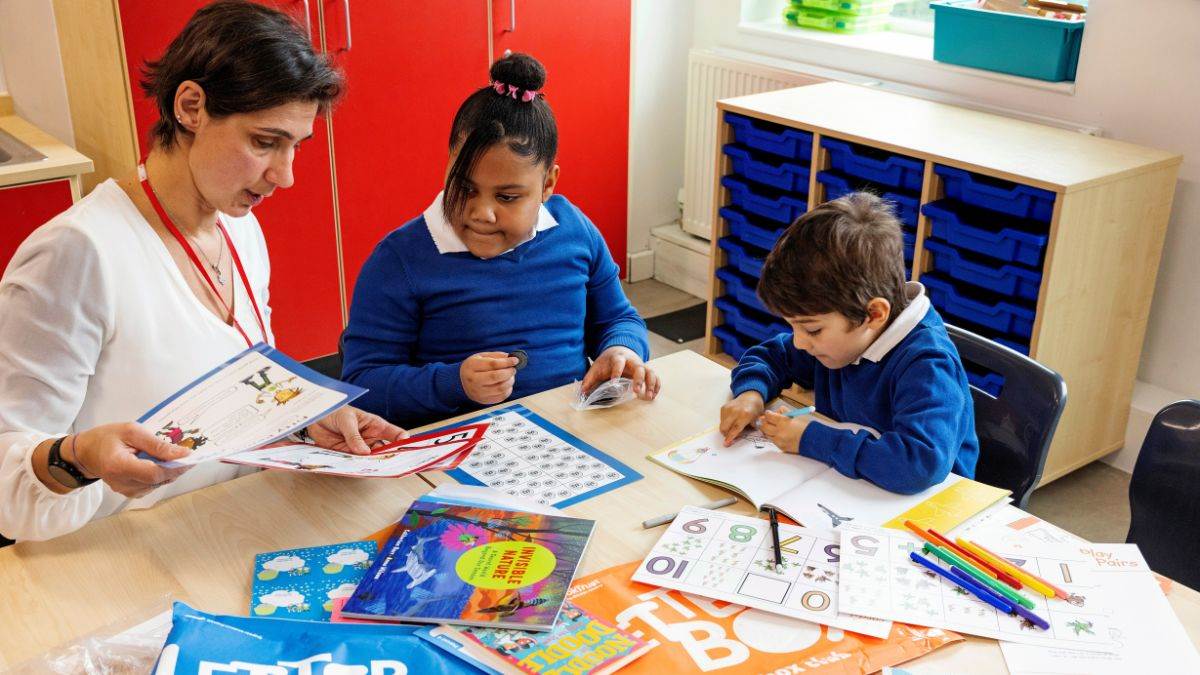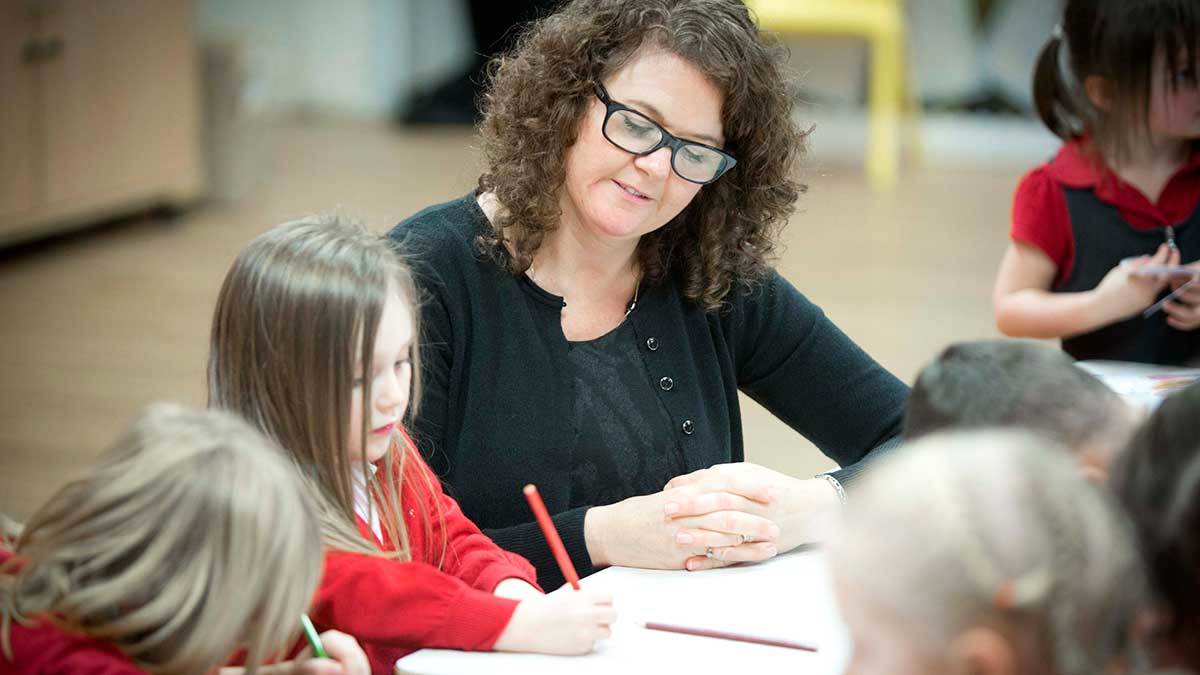The value of maths games
Published on: 22 March 2024
Numeracy expert Jo Lees shares with us the value of playing maths games with children experiencing vulnerability or disadvantage.

Inside BookTrust’s Letterbox Club parcels you’ll find age-appropriate maths games and exciting numeracy resources designed to develop number confidence and problem solving. Engaging with numeracy in an accessible way builds self-regulation, perseverance and collaboration strategies, which all have a positive effect on children’s emotional wellbeing.
Mathematics can be thought of as the basis for many things in our everyday lives.
From counting and measuring to using patterns and relationships to make estimations and predictions about such things as speed, distance and quantity. Maths helps us carry out a variety of important daily tasks such as cooking, travelling, managing our money, using technology, participating in sport, music and dancing, following a set of instructions, managing our time and solving problems.
For some children, maths can be a challenge in school, and they are not yet fluent in the fundamentals to support further progress. Playing maths games with an adult or family member can encourage them to engage with basic number alongside problem-solving and reasoning in a more inclusive environment. Increased fluency with number through playing maths games also prepares them for new learning in school. Maths games provide a structure and a process for children to engage in collaborative problem-solving in order to reach a goal. This might prove challenging for the child, but that is what makes game-playing fun!
Well-designed maths games are purposeful, and children experience regular success and enjoyment through challenge, collaboration and participation. Through feeling successful, children are more likely to engage with other maths opportunities and tasks, leading to greater motivation and perseverance with their maths in school. This, in turn, can lead to a feeling of social and emotional wellbeing resulting in a positive impact on educational outcomes for the child.
Games can be an engaging way to practise and extend skills.
They can build on children’s mathematics knowledge, generate repeated practice in a motivating context, and give children and adults an opportunity to discuss strategies and ideas. There is some evidence that board games with linearly arranged, consecutively numbered, and equal-sized spaces may be particularly beneficial to numerical understanding, by providing opportunities for developing strategies such as ‘counting on’.(1)
Maths games can develop key skills for life together with number fluency.
They should be rewarding and fun. When engaging with number, and playing a game, children develop turn-taking and a sense of fairness and equity. They may experience a greater sense of belonging when they are in class due to their increased number knowledge and readiness to participate. Self-regulation and perseverance are developed when playing maths games, together with the skills of collaboration and reasoning. In addition to this, maths games are an ideal vehicle for children to try new strategies and overcome difficulties, practising persistence and problem-solving as an implicit part of game-playing. They can see what works as a successful winning strategy and begin to evaluate why it works, so that they can play to win again. They can make repeated trials during a maths game without the pressure of ‘getting it right’.
Maths games also support children to learn how to approach failure with a growth mindset as games provide safe opportunities to take risks.

Research from the EEF (Education Endowment Foundation) into metacognition and self-regulation notes that these approaches carry a high educational value for a relatively low cost.(1)
Maths games develop these key skills for life by encouraging children to think about and plan their own game strategies more explicitly, often developing specific strategies for planning, monitoring, and evaluating their successes and challenges.
Self-regulated learning can be broken into three essential components:
- Cognition– the mental process involved in knowing, understanding, and learning.
- Metacognition – often defined as ‘learning to learn’; and
- Motivation – willingness to engage our metacognitive and cognitive skills.
Engaging in and playing maths games with an adult or family member enables children to develop self-regulation in an encouraging and ‘safe’ environment. Through this interaction with others, children begin to know and understand how a game works, and how they can play that game to win, be successful or collaborate. The value of feeling successful and being able to access a meaningful task can increase children’s willingness to participate at school, leading to greater number fluency and improved outcomes in maths, together with the development of practical and social skills for life.
There is some evidence to suggest that disadvantaged children are less likely to use metacognitive and self-regulatory strategies without being given explicit opportunities to experience, practise and develop these strategies. Using purposeful well designed maths games, children are more likely to use these strategies independently and habitually, enabling them to manage their own learning and overcome challenges themselves in the future.
About Jo Lees
Jo is a lifelong lover and user of mathematics. After studying pure mathematics at Southampton University to master’s level, she trained as a primary teacher and enjoyed teaching children across KS1 and KS2 for ten years. Jo then decided to focus on teaching mathematics at secondary level and moved across to an 11-16 setting as a second in department. She spent several years as head of mathematics in a secondary school in Hampshire before transferring across to work in a county advisory role, where she works today. The best part of her current job is working with teachers and pupils in a broad range of schools including primaries, secondaries, specialsand alternative provision settings.
References:
-
Metacognition and self-regulation | EEF (educationendowmentfoundation.org.uk)
Topics: Letterbox Club, Features





